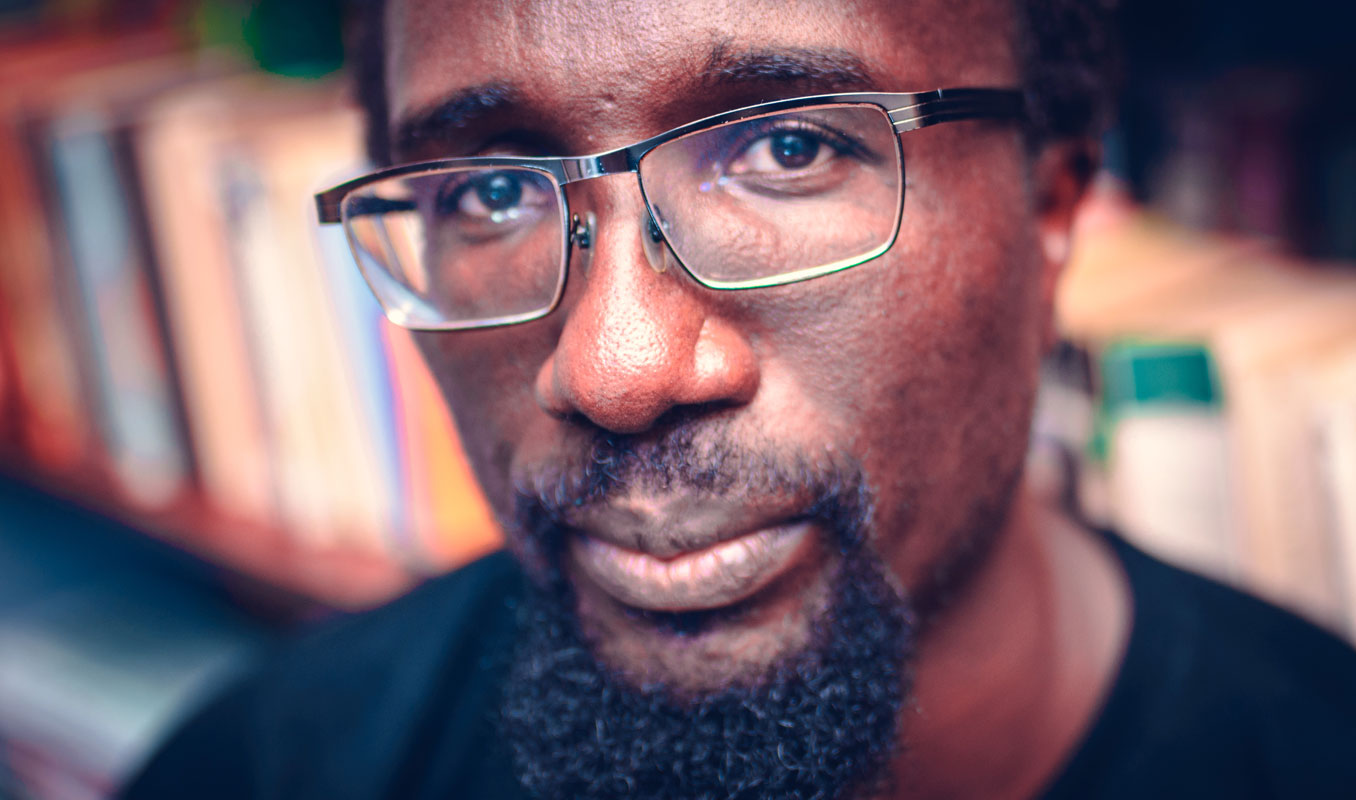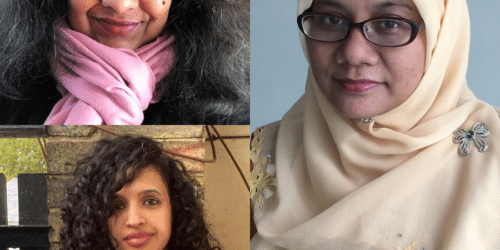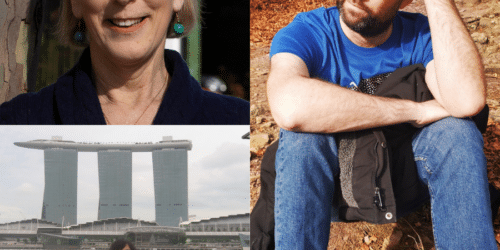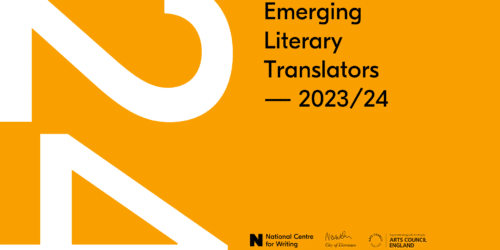
Dike Chukwumerije of the Abuja Literary Society looks at how, both in person and on mobile, creating a space where writers, readers and audiences can express themselves freely is crucial to building an inclusive literary community.
Commissioned for the International Literature Showcase.
It was a Friday evening, and we had nowhere to meet. Because the organization that promised us a room, unfailingly, for the second of our four monthly meetings had called at 5 to cancel our 7. We panicked, yes. For in 15 years, the Abuja Literary Society had never failed to hold a meeting. So, we drove up the road, and asked at a local bar if they could spare some tables. It was the most ‘non-literary’ space we had ever used, reciting poetry over the sounds of a hard-drinking Friday, but the meeting held.
For a literary group like ours, with no funding, consistency is great currency. Our people know that come wet or dry, we shall meet somewhere in the city of Abuja at 7pm on a Friday. The information is shared real time, on the whatsapp groups we have evolved into, where conversations run seamlessly. We maintain three such groups. In the first, we allow only information on meetings, no chatter – to cater to those who hate the noise. In the second, members share literary works for critique, for those who wish to grow as writers. And in the third, all-embracing, we allow talk on whatever tickles those who like to describe themselves as ‘literary enthusiasts’. This sensitivity to varied needs is the second element in our strategy.
The third is the rationale for that last whatsapp group, also known as ‘the chat group’, rooted in an understanding that came slowly to us. That not everyone attending a literary event wants to be a writer. So, a literary group does not have to be solely about writers. That, for the community, it can also be a type of recreation. I know, it is anathema to some, the idea that literature should also be entertaining! But, for this reason, we have different kinds of meetings. Yes, our book club still tends to be ‘bookish’. And we run workshops as well, regularly. But our Open Mics are positioned as ‘something else to do on a Friday’, to gather a diverse audience around a soft literary core. And we orient our anchors to moderate meetings knowing that Literature can be a social force. Like this, a novel that touches on gender equality can spark conversations on equality in an audience that may not, in truth, be interested in the novel.
Because, for us, the writer is not at the centre of the literary universe, you see? The right to self-expression is. And drawing people into this love, and respect, for expressing and listening is a subliminal aspect of what we do. To inspire people, across lines, to share a conversation. And to make this conversation as inclusive as possible, we think through the language and spaces in which it is carried out. For sometimes the greatest obstacle to accessing literature is the impression that it is only for a certain type of people. Well, it is not.
Dike Chukwumerije is a law graduate from the University of Abuja with a masters degree from SOAS, University of London. He is the Programs Director of the Abuja Literary Society (ALS) where he oversees the organisation of weekly literary events, including books readings, book clubs, open mics, workshops, guest author sessions and a yearly literary festival. He is also the CEO of Simply Poetry Ltd, a production company that specializes in creating and staging live theatre productions constructed around Poetry.







